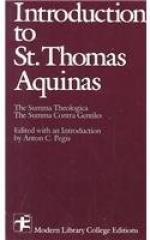
|
| Name: _________________________ | Period: ___________________ |
This quiz consists of 5 multiple choice and 5 short answer questions through Chapter 17, The End of Man Chapters XVIII, XIX, XX, XXV Chapter 18, XLVII, LI, LII, LIII.
Multiple Choice Questions
1. ____________ ourselves and others is the healing force.
(a) Prayer for.
(b) Faith in.
(c) Hope for.
(d) Forgiveness of.
2. Whether the intellectual principle is multiplied according to the number of bodies has to do with what?
(a) Perceptions of separation and connection.
(b) Perceptions of separation.
(c) Perceptions of connection.
(d) Perceptions of others.
3. Aquinas discusses agents and ____________.
(a) Agents.
(b) Actions.
(c) Reagents.
(d) Reaction.
4. The statement in number 137 is _______________ his other point that action is what manifests essence.
(a) Similar to.
(b) Contrary to.
(c) The same as.
(d) Somewhat like.
5. The divine essence is compared with what?
(a) Light.
(b) Love.
(c) Dark.
(d) Prayer.
Short Answer Questions
1. How many objections does Aquinas write in regards to whether the essence of the soul is its power?
2. According to Aquinas, is God truth?
3. Due to the answer to number 139, Aquinas claims that happiness ______________.
4. Does truth only exist in the intellect?
5. Aquinas claims that focus upon the spiritual means what?
|
This section contains 196 words (approx. 1 page at 300 words per page) |

|




